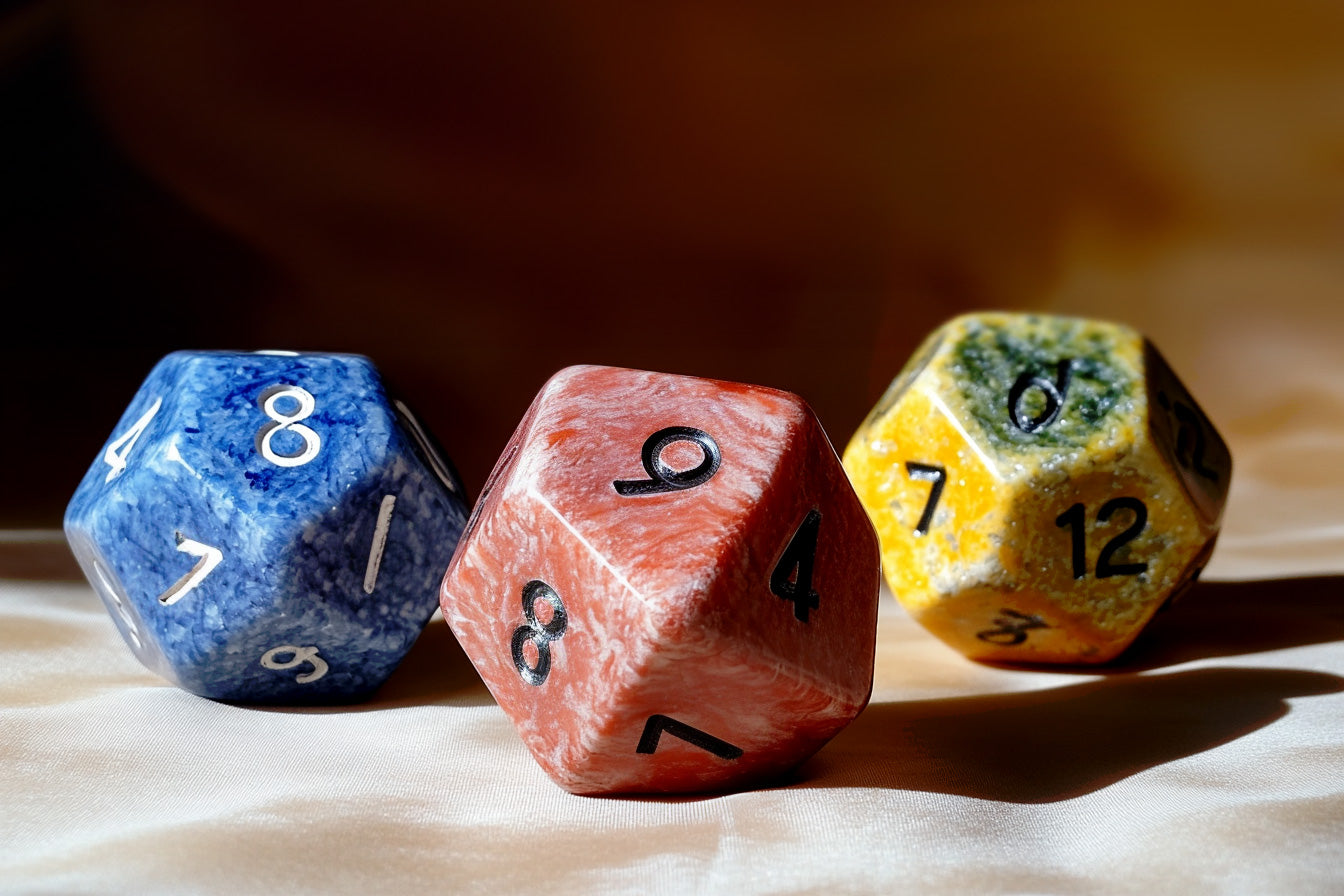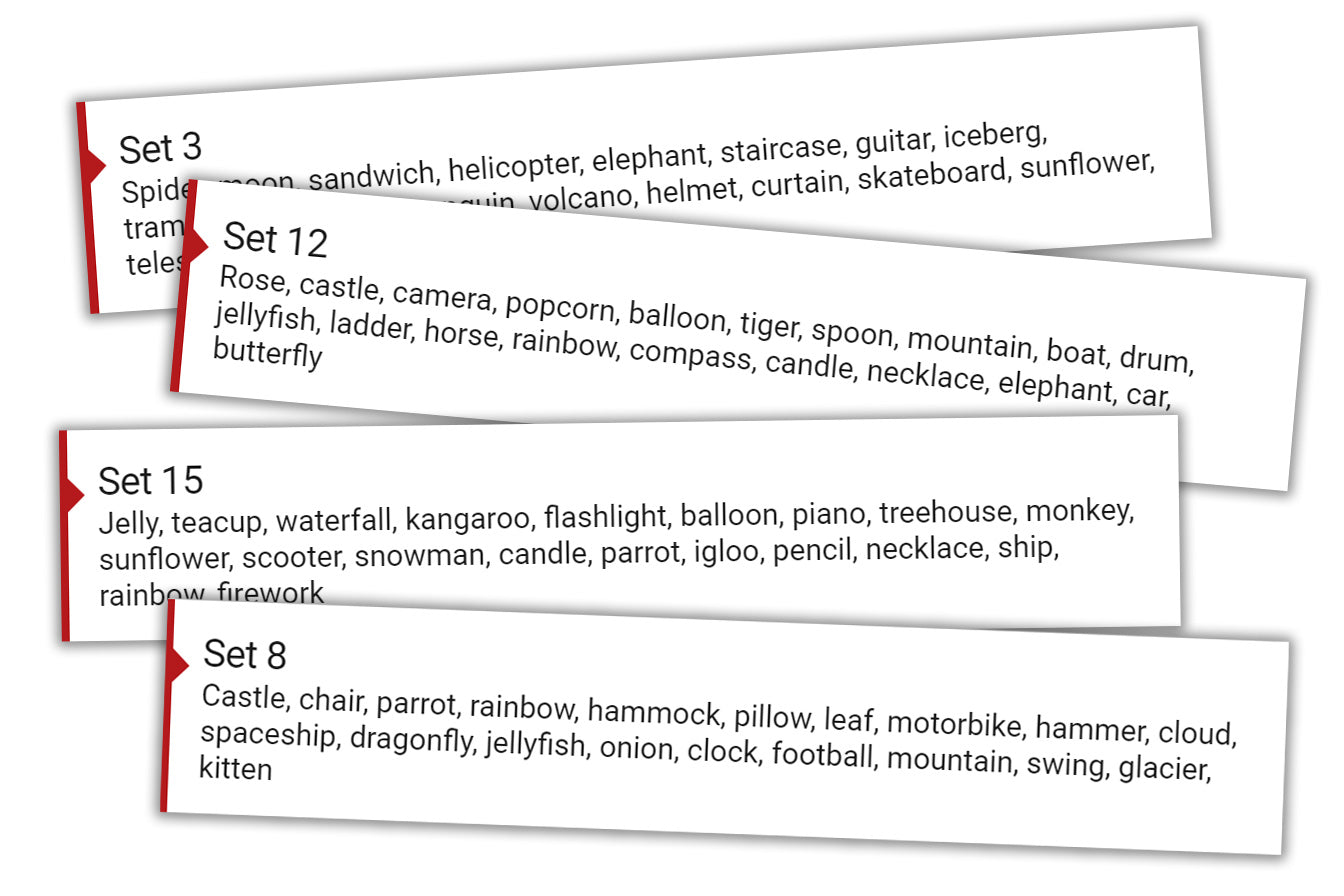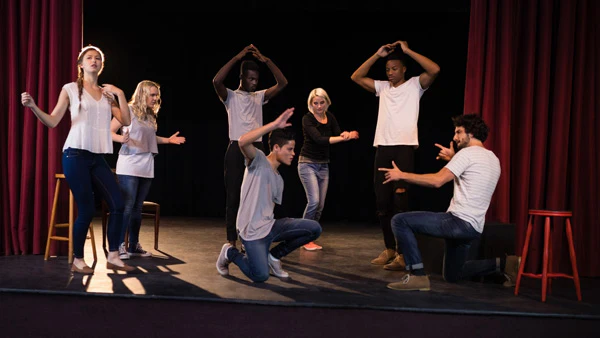Purpose
This is a fantastic exercise in teaching a number of important topics related to memory and retention. The exercise is actually rather simple—going through a list of words and recalling what has been stated. However, the way the list is structured helps to cover various interesting topics in relation with memory such as the following:
- Effect of primacy on memory
- Effect of recency on memory
- Repetition
- Element of surprise
- False-memory
Objective
You will hear a list of words. Write down as many of them as you can recall.
What You Need
- A list of words. Consider the following list:
- Spoon
- Bag
- Plate
- Scorpion
- Chair
- Pan
- Sweet
- Alarm
- Bent
- Chair
- Light
- Flower
- Curtain
- Wet
- Chair
- Door
- Dinner
- Plaster
- Tomato
- Car
- Papers
Setup
- Provide the papers to delegates.
- Explain that you will shortly read a list of words to them. Delegates must listen without taking any notes and try to remember as many words as they can. Once you have finished reading the words, they can start writing down as many words as they can recall.
- Say “Are you ready”?”
- Once everyone is ready, start reading the words from the list.
- Once finished, expect everyone to write down what they can recall.
- Now ask the following questions and expand on the related topics:
-
Primacy. “Who remembered ‘spoon’?”
- Many of you remembered this word. This is because of primacy which means we are good at remembering the first item in the list.
-
Recency. “Who remembered ‘car’?”
- Many of you remembered this word. This is because of recency which means we are likely to remember the most recent word heard; i.e. the last one in the list.
-
Repetition. “Who remembered ‘chair’?”
- Many of you remembered this because it was repeated three times in the list.
-
Surprise. “Who remembered ‘scorpion’?”
- Many of you remembered this word because it stood out from the rest of the list. It is also an unusual word which makes it easy to remember in comparison with a bunch of other general words you just heard.
-
False-memory. “Who remembered ‘table’?”
- Was this really in the list? (See if anyone spots that this word was not in the list). It wasn’t in the list, but you might have believed that it was because there were several related words such as “chair”, “dinner”, “spoon”, and “plate” which triggered an association with “table” and led to a false-memory.
-
Primacy. “Who remembered ‘spoon’?”
- Follow with a general discussion.
Timing
Explaining the Exercise: 2 minutes
Activity: 15 minutes including explanations
Group Feedback: 5 minutes
Discussion
What did you think of this exercise? How can you apply what you have learned here about memory to practical applications on memorisation? How can you relate this to your work? How does it relate to decision making by suggesting you need to pay more attention to recent data or repeated data more than others? How does this relate to media, propaganda and politics? How does it relate to storytelling? How can you exploit this to deliver a memorable presentation?
Soft Skills Training Materials
Get downloadable training materials
Online Train the Trainer Course:
Core Skills
Learn How to Become the Best Trainer in Your Field
All Tags
Training Resources for You

Course Design Strategy
Available as paperback and ebook

Free Training Resources
Download a free comprehensive training package including training guidelines, soft skills training activities, assessment forms and useful training resources that you can use to enhance your courses.

Our Comprehensive Guide to Body Language

Train the Trainer Resources
Get Insights - Read Guides and Books - Attend Courses
Training Materials
Get downloadable training materials on: Management Training, Personal Development, Interpersonal Development, Human Resources, and Sales & Marketing














Leave a comment
All comments are moderated before being published.
This site is protected by hCaptcha and the hCaptcha Privacy Policy and Terms of Service apply.